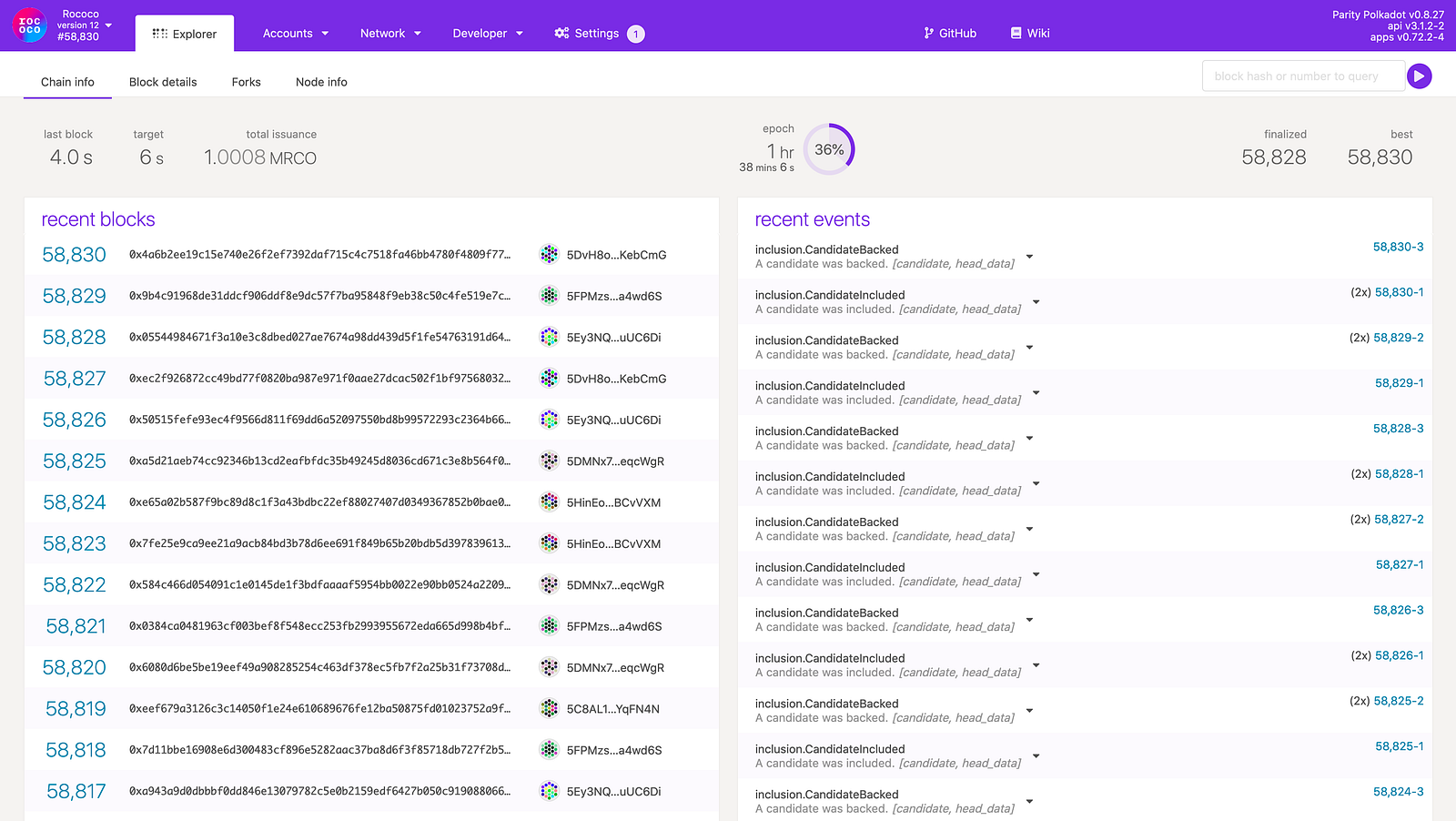Rococo V1 - A Holiday Gift to the Polkadot Community

By: Rob Habermeier, Polkadot founder
On behalf of the Polkadot team,
The Rococo V1 Parachains Testnet is up and running. Rococo is a public testnet, maintained by Parity Technologies along with the Polkadot developer community, aimed towards testing both the parachains consensus process itself as well as parachains built by the community and their interactions with each other. Earlier this year, we launched Rococo V0, which was based off of our prototype parachains code. Now, we’re introducing Rococo V1, based on the latest version of parachain consensus — the same code that will run on Polkadot and Kusama. The parachains V1 codebase is our production-ready code for parachains consensus, which differs from V0 in the mechanisms by which parachains are included as well as having a more robust and extensible software architecture.
Parachain slots will be made available as technology allows, and will be allocated on a first-come, first-serve basis. Like Rococo-V0, we will periodically restart Rococo V1 as backwards-incompatible changes emerge to enable us as a dev team to iterate faster over parachain-related APIs and take us to an earlier launch of the parachains functionality on the Polkadot and Kusama networks. Registering a parachain on Rococo will also involve a commitment to run at least one validator node of Rococo as well as at least one collator of the registered parachain. Validator nodes will be run out of the `master` branch of the Polkadot GitHub Repository. Reach out to us on the Element channel below for more information on running a validator node. Over time, we may require teams to maintain more validator nodes.
We won’t be opening up parachain registration by the community until early next year, Jan. 4 at the earliest, so teams can rest and charge up over the holiday season. We’ve got a big year ahead of us.

Rococo itself comes with support for XCMP-lite, our channel-based cross-parachain messaging protocol, which uses the relay chain as a transport mechanism. This is still being integrated in Cumulus, so you can look out for releases soon which provide APIs for using XCMP. Over the near future, we’ll be rolling out further parachain consensus improvements and optimizations on Rococo as we finish developing the last remaining components of parachains. After that point, we can safely call Polkadot’s codebase feature-complete.
Parachain developers and users of the Rococo testnet can join us in the Rococo Element Room
You can access the Rococo UI at Rococo Polkadot-JS Apps.
And our documentation on Parachains V1 is hosted in the Implementer’s Guide
Happy Coding and Happy Holidays,
Rob
From the blog

Key Metrics and Insights: June 2024
Stay updated with the latest Polkadot tech updates, metrics, and insights from June 2024, presented by the Parity Success Team.

Introducing the New Polkadot Ledger App
Discover the new Polkadot Ledger app for seamless, secure transactions. Now available on Ledger Live, it supports Polkadot, Kusama, and more.

Polkadot’s May Ecosystem Insights
Welcome to the latest edition of your go-to source for the latest tech updates, key metrics, and discussions happening across the Polkadot Ecosystem from the Parity Success Team. In this blog series, we cover a range of topics from sources such as Canny.io / GitHub / project teams and the Polkadot Forum. Core Metrics OpenGov Activity This month, once again, the community and its DOT holders have shown their passion for OpenGov, the platform where anyone can contribute and have their say in
